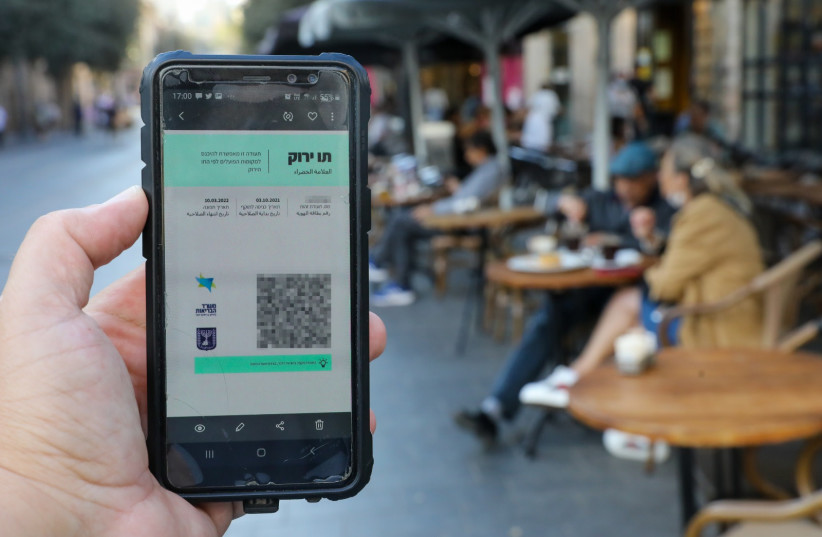Israelis are understandably confused about the rules and regulations the government has issued and regularly revises regarding COVID-19 – from testing and vaccinations to quarantine and travel.
We know that governments around the globe are struggling with the same problem. But if Israel is to provide a model for dealing with the pandemic and live up to its worldwide reputation as the “vaccination nation,” it’s time for some clarity.
With a record number of 600,000 people in isolation and more than 70,000 testing positive for the virus daily, the government this week cut the isolation time from seven to five days, provided one is asymptomatic. It also announced that 25-30 million antigen tests will be distributed to the citizens of Israel.
Part of the problem appears to be the mixed messages the public are getting from its leaders. Prime Minister Naftali Bennett, for example, explained the government’s policy on Tuesday as follows: “The government is looking for every way to assist the citizens of Israel in getting through the Omicron wave. We have decided to provide free tests to the citizens of Israel, pupils and the overall population. Also, yesterday we announced the shortening of the quarantine period to five days. Instead of lockdowns, we are working to find solutions in order to keep the economy functioning however possible and to get through the worst of the wave together.”
While Finance Minister Avigdor Liberman and Health Minister Nitzan Horowitz appeared to concur, Liberman then declared that he believed the Green Pass system should be canceled, saying there was “no medical or epidemiological logic” to continue requiring people to show a Green Pass.

Horowitz, on the other hand, said revoking the Green Pass to enter certain locations is not currently up for discussion. “At the moment it’s not on the agenda, but we’re always looking at the pros and cons,” he told Army Radio. “We have our fingers on the pulse; when necessary, we adjust the regulations to the changing reality.”
And therein, perhaps, lies the problem. It’s hard for us all to keep up with the adjusting regulations, especially when it comes to children. The situation has become so untenable that the government is now said to be considering a cancellation of the isolation requirement for children at the end of the month.
There are an increasing number of top medical experts criticizing the government’s policy. Prof. Idit Matot of Sourasky Medical Center in Tel Aviv posted on Facebook that as we mark two years since the outbreak of the pandemic, “Unfortunately, if there is one thing that still drives the decision-makers in this field, it is anxiety and the feeling of fear.”
Matot adds, “In fact, for a month now, we have been seeing and understanding that the Omicron strain is highly contagious but has minimal potential for damage. Minimal! We can see this; we do not have a single Omicron patient on a respirator here at Ichilov, not one.”
In response, the Health Ministry called Matot’s proposal to ease quarantine rules “unacceptable,” saying, “The policy Prof. Matot is suggesting is liable to lead to serious harm for at-risk groups and a rise in the numerous serious patients and mortality.”
What exactly is the Health Ministry advocating? That masses of Israelis continue to put our lives on hold until the country finally emerges from the Omicron wave? Because at this point, it appears that almost everyone must have come into contact with the variant. As Israel reaches what appears to be the peak of the Omicron spread, it is crucial for the government to do all it can now to restore public trust in its policies. Most importantly, the public needs calming messages and not ones that feed confusion and sow panic.
We all need to be clear what we as citizens should be doing, besides constantly wearing masks or staying at home, taking antigen or PCR tests, going into quarantine or hospital, and monitoring reports in the media. Rules can be updated as necessary, but most people don’t seem to have a clue what the current rules are as we try to assess whether or not they make sense.
